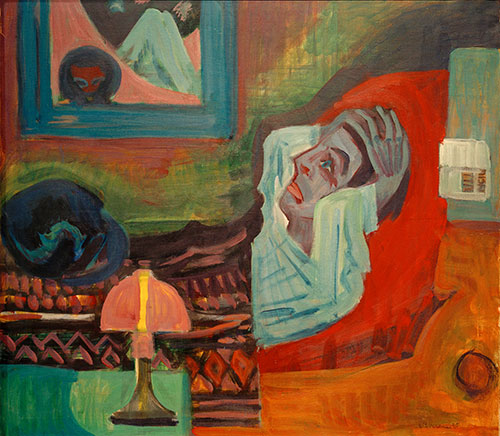Introduction to Infectious Diseases
Last update: 20.05.2019
The growing worldwide resistance to antibiotics requires much more cautious use of antibiotics when treating acute infectious diseases. What can Anthroposophic Medicine contribute in this situation? What possibilities does it offer that go beyond just focusing on the pathogens, how does it therapeutically guide and support a patient’s inflammatory response, and strengthen the person’s immunological resources, both acutely and preventatively? Which procedures have proven successful? How can Anthroposophic Medicine benefit patients with infectious diseases, whether acute or long-term?
In this section we present some of Anthroposophic Medicine’s multi-professional therapeutic concepts for common infectious diseases in childhood and adulthood.

Fig. «Sick person at night» of Ernst Ludwig Kirchner. © akg-images